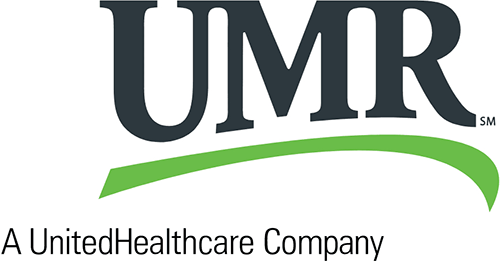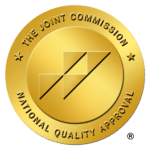Have you or a loved one grappled with the maze of options in addiction recovery, seeking a reliable path to sobriety? Amidst the myriad of treatments, evidence-based approaches offer a beacon of hope. This article will delve into the applicability of such treatments in substance recovery, honing in on motivational interviewing, art therapy, and the role of psychologists. It will also explore how organizations like narcotics anonymous complement these methods. Readers will gain insights on the effectiveness of evidence-based treatments, revealing how they can reduce relapse rates for individuals struggling with alcohol and other substances. By examining the key therapies and strategies for implementation, this piece promises practical guidance for those seeking solutions to the complex challenges of addiction recovery.
Key Takeaways
- Evidence-based treatments in addiction recovery prioritize scientific validation over traditional methods
- Personalized care, including cognitive behavioral therapy and medication, is essential for effective recovery
- Ensuring access to treatment requires overcoming barriers like stigma and complexities in insurance coverage
- Integrating technology like telehealth improves treatment access and support, especially in remote areas
- Advocacy for policy changes can enhance support for evidence-based addiction treatments and improve care
Understanding Evidence-Based Treatment in Addiction Recovery
Understanding Evidence-Based Treatment in Addiction Recovery begins with defining its principles, which are crucial for developing effective therapies. Scientific research plays a pivotal role in shaping behavioural therapy, couples therapy, and other evidence-based practices, distinguishing them from traditional methods. This subsection will elucidate how evidence-based protocols, including the use of schema in treatment, disulfiram in addiction management, and cognitive processing therapy for PTSD, have transformed recovery outcomes.
Defining Evidence-Based Treatment and Its Principles
Evidence-based treatment in addiction recovery refers to interventions validated by empirical evidence, ensuring clients receive therapies proven effective through scientific methods. These principles are grounded in systematic reviews of research and incorporate strategies designed to reduce relapse. Programs such as Acceptance and Commitment Therapy and Seeking Safety by Najavits are structured around these methodologies, affording individuals a reliable pathway to recovery supported by credible findings rather than anecdotal success.
As individuals navigate the complexities of addiction, the incorporation of evidence-based treatments serves as a beacon, illuminating the path to sustained recovery. Reliance on empirical evidence and systematic review offers tangible hope and actionable strategies, directly addressing the concern of relapse, which remains at the forefront of patients’ and practitioners’ minds:
| Treatment Approach | Purpose | Efficiency in Relapse Prevention |
|---|---|---|
| Acceptance and Commitment Therapy | Enhance psychological flexibility | High |
| Seeking Safety (Najavits) | Adress co-ocurring PTSD and substance abuse | High |
The Role of Scientific Research in Developing Effective Therapies
In the realm of addiction recovery, scientific research serves as the cornerstone for developing therapies with tangible results. Rigorous evaluation and adherence to data-driven practices have led to the creation of treatments such as the Seeking Safety program, designed to simultaneously address substance abuse and co-occurring mood disorders. Experts continually assess the efficacy of these programs to ensure that individuals receive the most effective care, thus charting a clear course for recovery predicated on proven success.
How Evidence-Based Practices Differ From Traditional Approaches
The evolution of addiction treatment from traditional approaches such as Alcoholics Anonymous and detox methods to evidence-based practices has been marked by the inclusion of scientific data. While traditional methods rely heavily on peer support and a generalized understanding of addiction, evidence-based treatments are grounded in research that identifies specific signs and symptoms of substance dependence, tailoring interventions accordingly. An example of this modern approach is the application of biofeedback, which allows clients to gain real-time insight into their physiological responses and develop coping mechanisms that are informed by objective data, thus meeting the need for a personalized and result-oriented recovery process.
The Benefits of Evidence-Based Treatment Methods
Evidence-based treatment methods in addiction recovery are increasingly recognized for their efficacy and precision. These treatments, from integrative behavioral couples therapy in primary care settings to individualized plans guided by urine analysis, mark significant advancements in enhancing recovery outcomes with proven therapies. Health professionals have documented a decline in relapse rates through the implementation of practical, data-informed strategies. Moreover, personalized care, which tailors treatment to individual needs, has risen as a key component in long-term success. The following sections will delve into the tangible benefits of these methodologies, highlighting their transformative potential for individuals grappling with the disease of addiction.
Enhancing Recovery Outcomes With Proven Therapies
In the context of addiction recovery, enhancing outcomes through evidence-based treatments has shown exceptional promise. For instance, ambulatory care centers adopt interventions such as exposure therapy to successfully treat individuals with dependencies on narcotics, resulting in improved emotional regulation and life skills. Such interventions are meticulously crafted based on clinical research, ensuring each program is tailored to address the multifaceted needs of those in recovery and effectively guiding them towards a more stable and fulfilling life.
Reducing Relapse Rates Through Practical Strategies
Practical strategies for reducing relapse rates in addiction recovery often involve a comprehensive approach that includes family therapy, where caregivers play a crucial role in supporting the individual’s mental health journey. Guidelines set forth by the American Psychological Association encourage such inclusion of social work experts to foster a supportive environment, thus strengthening the recovery process. These collaborative efforts prove instrumental in creating a network of accountability and assistance for those overcoming addiction.
| Strategy | Role | Impact on Relapse Rates |
|---|---|---|
| Family Therapy | Engagement of Caregivers | Reduction of Relapse Likelihood |
| Social Work Intervention | Providing Continuous Support | Minimized Risk of Recidivism |
Personalized Care: Tailoring Treatment to Individual Needs
Personalized care in addiction recovery encompasses a client-centered approach, prioritizing cognitive behavioral therapy and other tailored therapies to meet the unique needs of each individual. By focusing on problem solving and fostering a strong therapeutic relationship, healthcare providers can integrate treatments like methadone maintenance with behavioral interventions to address the specific challenges faced by clients. These concerted efforts are critical for building a resilient foundation for lasting recovery.
| Aspect of Personalized Care | Description | Benefit |
|---|---|---|
| Cognitive Behavioral Therapy | Addresses thought patterns influencing behaviors | Empowers clients to cope with cravings |
| Methadone Maintenance | Medication-assisted treatment for opioid dependency | Reduces withdrawal symptoms and supports recovery |
| Therapeutic Relationship | Trust and rapport between client and therapist | Enhances engagement and promotes adherence to treatment |
Key Evidence-Based Therapies for Addiction Recovery
The exploration of Key Evidence-Based Therapies for Addiction Recovery sheds light on the robust strategies combatting addictive behaviors. Cognitive Behavioral Therapy (CBT) underscores the influence of thought patterns, while Motivational Interviewing propels internal motivation. The integration of Medication-Assisted Treatment (MAT) combining medications and therapeutic interventions and Contingency Management, which encourages sustained behavioral changes, highlight the innovative landscape of treatment programs. These modalities often attract health insurance coverage and may include meditation and seeking safety trainings, exemplifying versatility in approach and execution.
Cognitive Behavioral Therapy (CBT) and Its Impact
Cognitive Behavioral Therapy (CBT) has demonstrated significant efficacy in the realm of addiction recovery, particularly for individuals struggling with tobacco smoking. As a foremost treatment, CBT addresses the psychological roots of dependency, providing individuals with the knowledge they need to counteract addictive thought patterns. Health care professionals utilize this therapy to equip patients with practical coping strategies, aiding in long-term abstinence and overall well-being.
| CBT Application | Target Behavior | Resulting Benefit |
|---|---|---|
| Thought Pattern Identification | Tobacco Usage | Heightened Self-Awareness |
| Coping Strategy Development | Cravings Management | Improved Abstinence Rates |
| Behavioral Rehearsal | Relapse Prevention | Empowerment in Recovery |
Additionally, while CBT is widely recognized for its impact on substance abuse, its integration with treatments like acupuncture has opened new avenues for comprehensive care. By coupling the knowledge gained through CBT with the symptoms alleviation offered by acupuncture, health care systems are able to develop multifaceted programs that support the holistic recovery of those battling addiction, further exemplifying the robust nature of evidence-based treatments.
Motivational Interviewing: Fostering Internal Motivation
Motivational Interviewing, as endorsed by the Mayo Clinic and other leading health organizations, plays a fundamental role in aligning a patient’s personal values and goals with their recovery journey from substance dependence. This evidence-based therapy, often applied alongside behavioral analysis, supports patients and parents alike in navigating the cultural dimensions of addiction. By employing tailored questioning techniques, healthcare practitioners empower individuals to uncover and harness their intrinsic motivation, fostering a commitment to change and enhancing the likelihood of successful, long-term recovery.
Medication-Assisted Treatment (MAT): Combining Medications With Therapy
Medication-Assisted Treatment (MAT) integrates pharmaceutical interventions with behavioral therapies to form a dual approach in rehab programs, enhancing the capacity for health and cognition restoration. With the strategic use of medications to stabilize brain chemistry and reduce withdrawal symptoms, concurrent counseling sessions address the psychological facets of addiction, laying the groundwork for sustained recovery. This synthesis fosters a recovery environment where patients can focus on therapeutic activities, reinforcing their path to well-being.
Contingency Management: Reinforcing Positive Behaviors
Contingency Management (CM) emerges as a formidable strategy in the spectrum of evidence-based treatments for addiction recovery, harnessing the power of reward systems to reinforce positive behaviors. Clinical research, as presented in PubMed and other reputable sources, substantiates the efficacy of CM in promoting abstinence and other treatment goals by offering tangible rewards for observable behavioral changes. By directly influencing decision-making and reinforcing desired actions, this approach aligns with the principles of operant conditioning to actively engage the brain’s reward pathways, thus fostering sustained change within the community and among individuals striving for recovery.
Implementing Evidence-Based Practices in Recovery Programs
The inclusion of evidence-based practices in recovery programs necessitates careful assessment of treatment centers, collaboration with healthcare professionals, and the establishment of measurable goals. In assessing a residential treatment center, one must look for the integration of approaches such as seeking safety therapy and dialectical behavior therapy. Optimal care often requires the expertise of psychiatrists and an emphasis on personalized therapies, including interpersonal psychotherapy. Establishing objectives and tracking progress are pivotal to gauging the effectiveness of these treatments, ensuring clients have clear milestones throughout their recovery journey.
Assessing Treatment Centers for Evidence-Based Approaches
To discern a quality treatment center for addiction recovery, one must diligently survey the facility’s adoption of evidence-based approaches. The presence of specialized treatments like schema therapy for those dealing with complex psychological needs or dual diagnosis, or specific programs addressing military sexual trauma, is a clear indicator of comprehensive care. Moreover, a center’s commitment to modern practices can often be corroborated by a review of its https credentials, assuring a secure and trusted environment for sensitive health information management.
Furthermore, professionals and patients alike benefit significantly when a recovery center’s treatment methodologies align with their quality of life goals:
- Schema therapy may effectively mitigate the cyclical patterns of negative behavior, while dual diagnosis treatment tackles concurrent disorders, providing a holistic path to wellness.
- Programs attuned to military sexual trauma underscore a deep understanding of the patient’s history, fostering trust and a tailored therapeutic approach.
- Ensuring secured data practices through https protocol not only conforms to legal standards but also reinforces the legitimacy and safety of the institution for all stakeholders.
Collaborating With Healthcare Professionals for Optimal Care
In addiction recovery, the synergy between healthcare professionals is paramount. A clinical psychology review may present compelling evidence for the inclusion of music therapy to aid patients dealing with substance abuse, prompting an interdisciplinary approach in patient care. This collaborative dynamic honors the complexity of addiction, fostering an environment where therapists and clinicians converge to create a cohesive treatment plan that is responsive to the nuanced challenges each patient faces.
| Professional Expertise | Treatment Modality | Contribution to Recovery |
|---|---|---|
| Clinical Psychologists | Cognitive Behavioral Therapy | Facilitates understanding of thought patterns. |
| Music Therapists | Music Therapy | Supports emotional processing and relief. |
| Substance Abuse Counselors | Group Counseling | Offers peer support and relapse prevention strategies. |
Setting Measurable Goals and Monitoring Progress
Setting measurable goals within addiction recovery programs is a critical aspect of monitoring progress, particularly for individuals coping with a personality disorder or emerging from a dysfunctional family environment. These goals often include behavioral markers related to managing fear response or improving relational dynamics, which can be monitored through consistent therapeutic sessions. By integrating music therapy to sooiliate emotional trauma, for example, practitioners can track improvements in emotional regulation and interpersonal skills, making adjustments to the treatment plan as needed. This structured process not only informs the efficacy of the program but also empowers patients by clearly demonstrating advancements in their recovery journey.
Overcoming Challenges in Accessing Evidence-Based Treatment
While evidence-based treatment offers a powerful approach to addiction recovery, individuals often face substantial barriers to accessing such care. This section examines critical challenges, including the persistence of misconceptions and stigma surrounding addiction, the complexity of securing insurance and funding for treatment, and the need to extend evidence-based services to underserved communities. It outlines practical solutions for addressing these hurdles, such as clarifying the value of interventions like prolonged exposure therapy and demystifying the processes of infection control and medicine management during drug withdrawal.
Addressing Common Misconceptions and Stigma
Common misconceptions and stigma often form substantial barriers that prevent individuals from seeking evidence-based therapies for addiction recovery. These societal misjudgments, particularly around methodology and ethics, can deter those in need from exploring life-saving options like seeking safety groups, hampering efforts to reduce opioid overdoses. It is paramount for practitioners to educate the community, clarify correct dosages, and the efficacy of treatments to remove the stigma, ensuring that more people feel empowered to access the quality, evidence-based care they require for a successful recovery.
Navigating Insurance and Funding for Treatment
The journey to securing insurance and funding for addiction recovery treatments exposes vulnerabilities in the healthcare system, often placing a heavy burden on individuals and their families. Navigating the complexities of insurance policies, which may cover an intensive outpatient program or sessions of rational emotive behavior therapy, requires a clear understanding of the benefits, exclusions, and the extent of coverage for stress management and other mental health services. Advocacy and peer support play critical roles in this process, empowering clients to challenge denials and work towards comprehensive coverage of evidence-based treatments that offer a sustainable path to recovery.
Expanding Access in Underserved Communities
Expanding access to evidence-based treatment in underserved communities is a critical step in addressing disparities in addiction recovery services. Incorporating behavior modification therapies and psychosocial supports can address the holistic needs of individuals suffering from drug-related psychosis. Moreover, qualitative research into community-specific barriers can inform the development of tailored intervention strategies that are responsive and culturally sensitive, thus improving overall treatment outcomes and bridging the gap in care.
To effectively extend the reach of addiction treatment programs in these areas, a multi-faceted approach is necessary:
- Establishing community outreach initiatives that educate on the dangers of substance misuse and the availability of treatment options.
- Integrating evidence-based practices with existing local healthcare services to enhance their capacity to treat addiction.
- Partnering with local stakeholders to ensure that the provided treatments are accessible and acceptable to the community members they aim to serve.
The Future of Evidence-Based Treatment in Addiction Recovery
The future of evidence-based treatment in addiction recovery is poised for dynamic advancements, with innovations in psychotherapy and emerging therapies on the horizon. Embracing the role of technology, mental health services are enhancing treatment accessibility, bringing new exercises and skills into the fold. Concurrently, specialized knowledge in evidence-based approaches amplifies advocacy for policy changes, bolstering the support for these effective practices.
Innovations and Emerging Therapies on the Horizon
Innovations in the field of addiction recovery are being propelled by emerging therapies that reflect the results of quantitative research, highlighting the reduction of risk through integrative approaches that include yoga and psychosocial support. These advancements, augmented by precision in medication management, demonstrate the industry’s commitment to evolving treatment paradigms to encompass a broader spectrum of patient needs, ultimately enhancing the potential for successful long-term recovery.
The Role of Technology in Enhancing Treatment Accessibility
The integration of technology in addiction recovery is revolutionizing treatment accessibility, particularly with advancements like the increased availability of naloxone for emergency overdose intervention, and the implementation of telehealth services for partial hospitalization programs. These technological strides are crucial in managing emotion regulation among individuals with addictions and extending specialised support, like that offered by the Veterans Health Administration, to populations that typically face barriers to accessing care.
For instance, in the Veterans Health Administration system, telemedicine platforms have allowed for unparalleled reach into rural areas, providing veterans with consistent access to addiction recovery resources and professional support. This bridging of geographical gaps not only ensures adherence to treatment plans, but it also facilitates the monitoring of progress and the adjustment of therapies as necessary:
| Technology Application | Adoption Benefit |
|---|---|
| Increased Naloxone Distribution | Immediate response to overdose, reducing fatalities. |
| Telehealth for Partial Hospitalization | Consistent, remote access to intensive treatment. |
| Digital Platforms for Emotion Regulation | Self-directed coping skills for managing addiction. |
Advocating for Policy Changes to Support Effective Practices
Advocating for policy changes is essential to ensure that mental health care, including addiction treatment, is underpinned by evidence-based practices. It necessitates concerted efforts from physicians, mental health counselors, and lawmakers to recognize the importance of a well-structured reward system in recovery programs, and to facilitate access to necessary treatments, including the appropriate use of sedatives under medical supervision. By enacting policies that reflect current research and clinical expertise, healthcare systems can enhance the support provided to individuals struggling with addiction and foster a more effective and compassionate mental health care landscape.
Conclusion
Evidence-based treatment in addiction recovery prioritizes proven therapies, advancing patient outcomes and reducing relapse rates by incorporating strategies validated by scientific research. It offers a personalized approach, recognizing the unique challenges of each individual and tailoring treatments to enhance the probability of long-term success. As healthcare professionals continue to collaborate and integrate innovative, data-driven practices, treatment accessibility and efficacy improve, particularly for underserved communities. The ongoing push for these rigorous therapeutic methods ensures a more robust and effective framework in combating the pervasive issue of addiction.













